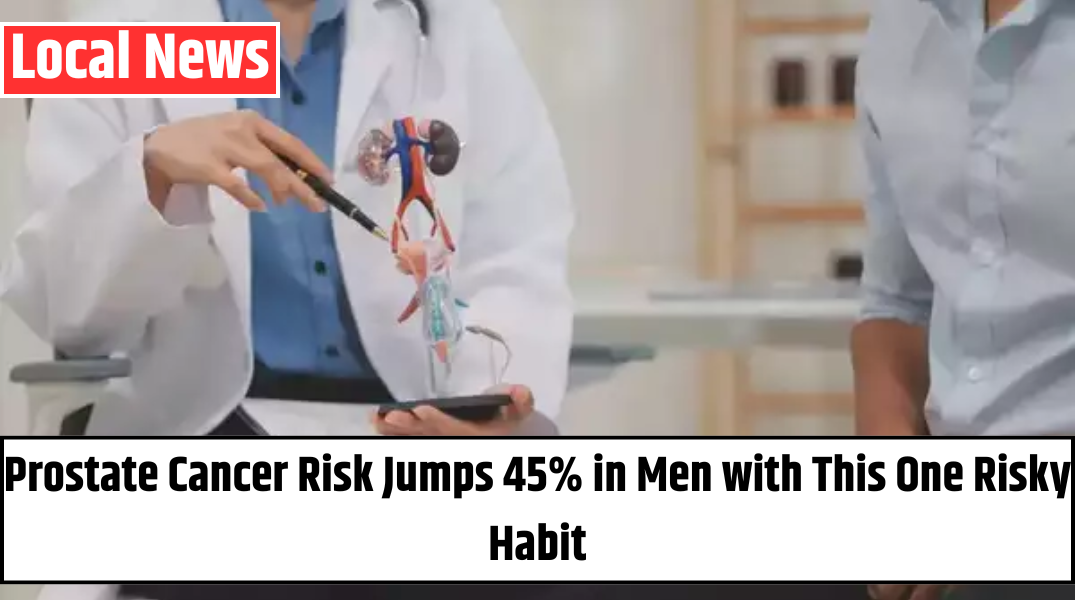Men who consistently miss prostate cancer screening appointments may be putting their lives at significant risk, according to new research. A long-term analysis reveals that those who opt out of these screenings are 45% more likely to die from the disease.
Prostate cancer remains the most commonly diagnosed cancer among men and is the second-leading cause of cancer-related deaths, according to data from UC San Francisco. Experts say this risk could be significantly reduced if widespread, routine screening programs—particularly those involving prostate-specific antigen (PSA) blood tests—were implemented.
By catching the disease early through PSA testing, men are more likely to access timely treatment, potentially increasing their chances of survival and reducing the need for costly therapies typically required in advanced stages of the disease.
This latest insight comes from the European Randomised Study of Screening for Prostate Cancer (ERSPC), the world’s largest trial on prostate cancer screening. Conducted across seven European countries—Finland, Sweden, the Netherlands, Italy, Belgium, Switzerland, and Spain—the ERSPC provides valuable long-term data on the benefits of PSA screening.
Also Read – ‘That’s Not Real’ Plane Passenger Tiffany Gomas Reinvents Herself with New Career
Researchers from Erasmus MC Cancer Institute at the University Medical Centre in the Netherlands analyzed 20 years of follow-up data. Their focus was on the relationship between attendance at screening appointments and prostate cancer mortality.
Out of more than 72,000 men who were invited to participate in regular screenings, around one in six never attended a single session. These non-attenders had a 45% higher risk of dying from prostate cancer compared to those who showed up for their appointments.
Even more revealing, when compared to a control group of men who were never invited to screen, those who attended the screenings had a 23% lower risk of death. In contrast, non-attenders still had a 39% higher risk than those in the control group.
Lead researcher Dr. Renée Leenen emphasized that this avoidance behavior may be part of a broader pattern of health disengagement.
“It’s likely that men who avoid screenings are also less likely to engage in other healthy behaviors or seek preventative care,” she said. “They may be what we call ‘care avoiders,’ in contrast to men who are more health-conscious and proactively participate in screenings.”
Dr. Leenen stressed the importance of understanding why some men choose not to attend screenings and how to address those barriers. “Improving attendance rates could dramatically increase the success of national prostate cancer screening programs,” she said.
Dr. Tobias Nordström, a urologist at Sweden’s Karolinska Institute, echoed this sentiment, pointing out that understanding the psychology behind screening avoidance could help reduce negative health outcomes.
“These men are actively declining to participate, and we need to better understand the reasons behind those choices,” he said.
Also Read –Beauty Influencer Guava Beauty, Famous for Eating Makeup, Dies at 24
The study’s findings will be presented at the upcoming European Association of Urology (EAU) Congress in Madrid, where global experts will gather to discuss advancements in prostate cancer prevention and treatment.
Fox News senior medical analyst Dr. Marc Siegel, though not involved in the study, has previously stressed the importance of early detection through regular medical screenings. “Early diagnosis is critical for improving outcomes,” Siegel said, reinforcing the broader medical consensus.
As researchers continue to advocate for national screening programs, the message is clear: taking time for a simple screening could be the key to saving thousands of lives.

